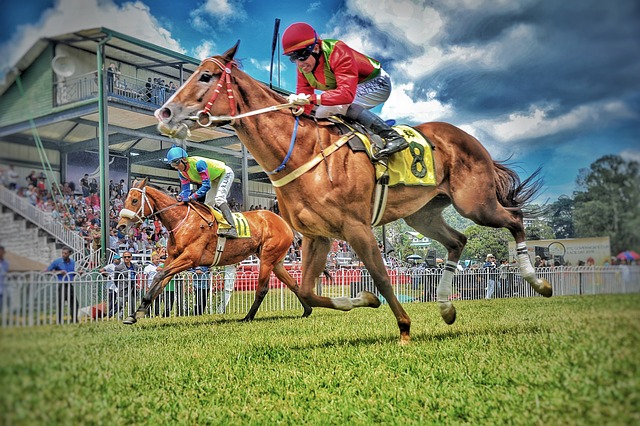Born in Pembrokeshire, South West Wales on July 29, 1965, Carl Llewellyn is nowadays best known as assistant trainer to Nigel Twiston-Davies at Grange Hill Farm in Naunton, Gloucestershire. In fact, he rejoined Twiston-Davies, to whom he had previously been stable jockey for 18 years, in 2009, after being sacked as salaried trainer to owner Malcolm Denmark at Weathercock House Stables in Lambourn.
A graduate from the point-to-point field, Llewellyn rode his first winner under National Hunt Rules, Starjestic, trained by Roy Robinson, in a steeplechase at Wolverhampton on March 14, 1986. He spent his early riding career as amateur jockey to Stan Mellor and Jim Old, before joining Tim Forster, with whom he would win the conditional jockeys’ title in 1987/88. Indeed, on March 16, 1988, Llewellyn rode his first Cheltenham Festival winner, Smart Tar, trained by Mark ‘Jumbo’ Wilkinson, in the Mildmay of Flete Challenge Cup.
As a jockey, Llewellyn is probably best remembered for winning the Grand National twice, on Party Politics, trained by Nick Gaselee, in 1992 and Earth Summit, trained by Nigel Twiston-Davies, in 1998. In fact, both horses were fortuitous ‘spare’ rides, after their respective regular jockeys, Andy Adams and Tom Jenks, were ruled out through injury. However, he also won the Welsh Grand National on Bindaree, trained by Twiston-Davies, in 2003 and the Scottish Grand National on Run For Paddy, whom he also trained, in 2006.
Llewellyn enjoyed his most successful season, numerically and fiscally, in 1997/98, when he rode 82 winners from 562 rides and amassed £914,962 in total prize money. That season he recorded five Grade 1 winners, Kerawi in the Christmas Hurdle at Kempton, Mistinguett in the Cleeve Hurdle at Cheltenham, Jack Doyle in the Scilly Isles Novices’ Chase at Sandown, Upgrade in the Triumph Hurdle at the Cheltenham Festival and Mahler in the Heineken Gold Cup at Punchestown, all of whom were saddled by Twiston-Davies.
 For readers unfamiliar with the name, Brian Toomey is a former National Hunt jockey, who finally retired from the saddle on June 14, 2016, but has recently made headlines by passing the British Horseracing Authority (BHA) required to be granted a training licence. Toomey rode 49 winners under National Hunt Rules in Britain, but his story is all the more remarkable for the fact that, on July 4, 2013, he was pronounced clinically dead for six seconds and, at one point, was given just a 3% chance of survival. On that day, his mount, Solway Dandy, fell heavily at the third-last flight in a conditional jockeys’ handicap at Perth and Toomey suffered a horrific head injury, which caused him to lose consciousness.
For readers unfamiliar with the name, Brian Toomey is a former National Hunt jockey, who finally retired from the saddle on June 14, 2016, but has recently made headlines by passing the British Horseracing Authority (BHA) required to be granted a training licence. Toomey rode 49 winners under National Hunt Rules in Britain, but his story is all the more remarkable for the fact that, on July 4, 2013, he was pronounced clinically dead for six seconds and, at one point, was given just a 3% chance of survival. On that day, his mount, Solway Dandy, fell heavily at the third-last flight in a conditional jockeys’ handicap at Perth and Toomey suffered a horrific head injury, which caused him to lose consciousness.